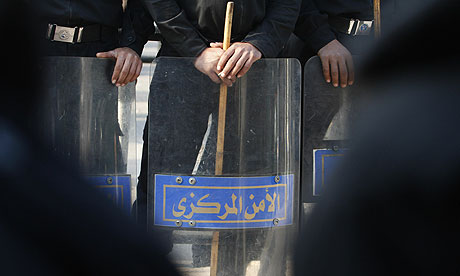Nothing preoccupies broad sectors of Egypt’s political and media elite more than the question of the inheritance of power by President Hosni Mubarak’s son.
Over the past five years there has been no noticeable shift in the prevailing discourse on the subject, nor has there been any change in the government’s stance save for the few times the president and his son refuted claims that the top post will be inherited.
However, the limited change that has occurred in the organizational structure of the ruling National Democratic Party during its 9th General Conference (Nov. 3-5) has given new impetus to talk about the transfer of power.
This resulted from the establishment of the Supreme Committee comprising members of both the Political Bureau and the General Secretariat, tasked with nominating a presidential candidate for approval during the General Conference.
Those who believe that inheritance of power is inevitable consider this organizational change to be a decisive step towards setting the scene for the anticipated heir. They base their conviction on the fact that, of the 44 members of the newly formed committee, the only one who has been groomed to achieve star status has been the President’s son.
But this line of reasoning is weak. If the Supreme Committee was set up solely to prop up the young Mubarak, then there isn’t really much use for it.
Alternatively we may consider it this way: If the whole point of the committee is to set the stage for the President’s son, then a new composition of the NDP’s Political Bureau would have been sufficient. As a member of the General Secretariat, Gamal Mubarak would have naturally been part of the Bureau, in which case he would have been one of 14 possible candidates rather than one of 44, according to the new committee.
Before the creation of this new committee, the Political Bureau was constitutionally mandated, under the amendment to Article 76 regulating presidential elections, to nominate a candidate.
So if the issue was simply ensuring that succession will go to Gamal Mubarak, then there would have been no need for these changes in the party’s organizational structure.
At the same time, the justification offered by leading NDP members for setting up the new committee is not convincing either. They claim that they want to increase the options, not narrow them down, let alone restrict them to one person.
Yet, judging by its record over close to 30 years, increasing political participation has never been one of the goals of the Egyptian ruling party.
In essence, the beleaguered party is trying to achieve a political makeover to overcome its crisis without making fundamental changes. It wants to give an impression that it is now leading the government, as opposed to merely supplementing it, as was the case since it was first established.
However, in the absence of a significant evolution in the nature of the political system, the NDP lacks the credibility to change its image. That is why the introduction of this new committee gave new momentum to the controversy over the transfer of power instead of assuaging the doubts and fears of the political and media elite.
This controversy is coupled with various accusations leveled against the President’s son, tackling not only his pubic role, but sometimes his private life.
It seems Gamal Mubarak is the victim of a mutant political climate resulting from his father’s policies.
Talk of inheritance and severe attacks on Mubarak, the son, would not have reached such heights were it not for the current political vacuum, the result of a stagnant political climate, weakened political parties, and the political apathy of the vast majority of the population who see no use in participating in elections whose results are a forgone conclusion. This can only lead to bitterness and a sense of defeat.
The sharp and sometimes excessive and slanderous language used in the discourse on the transfer of power, is in turn the result of a painstaking attempt by the government to strangle significant sources of serious dialogue, hijacking all debate and leaving one dominant voice on the scene to drown out any others.
It is natural for the excessive authoritarianism of the Mubarak regime to result in this overflow of political slander, of which the young Mubarak will be on the receiving end.
And if we contend that the source of this slander is the “haphazard press and the angry political outcasts which lack proper vision or a political platform, then, we can also say that Mubarak junior is the victim of his father’s policies of repression and marginalization against legitimate parties.
Dr Waheed Abdel Meguidis an expert at Al Ahram Center for Political and Strategic Studies.

